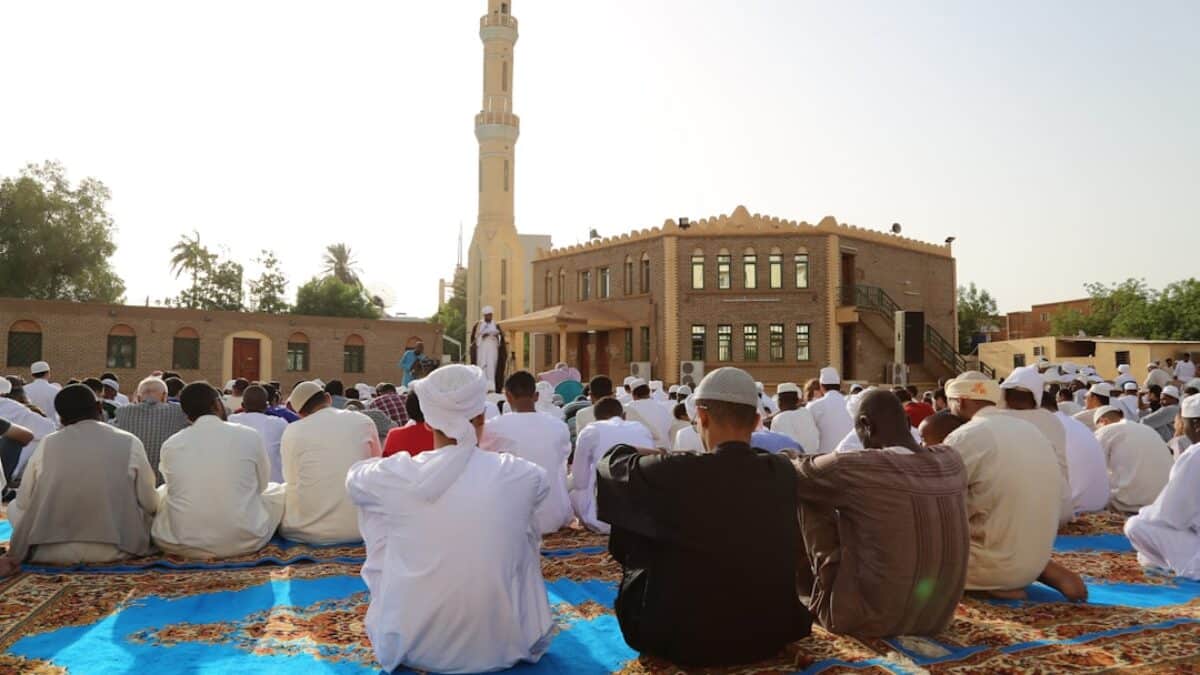The arrival of Ramadan is greeted with a collective intake of breath across the Muslim world. Markets glow brighter, mosques echo longer, and hearts beat faster in anticipation of thirty days that can reshape an entire year—perhaps an entire lifetime. Yet amid the flurry of meal prep, prayer timetables, and social plans, a subtle but decisive factor quietly governs every act of worship: the niyyah, the intention nestled in the heart before a single morsel is swallowed or a single prostration is made. While fasting muscles may ache and nightly prayers may exhaust, the spiritual value of each effort is calibrated by the sincerity, clarity, and loftiness of that initial intention. In other words, your Ramadan rewards are not measured merely by what you do, but by why you do it.
This article explores the spiritual architecture of Ramadan through the lens of niyyah, showing how a deliberate, God-centered intention unlocks layers of mercy, forgiveness, and elevation that would otherwise remain sealed. You will learn how classical scholars defined niyyah, how modern distractions dilute it, and how practical techniques can restore it to its rightful place at the center of every fast, recitation, and charitable gift.
Understanding Niyyah in the Context of Ramadan
Linguistic and Technical Definitions
In Arabic, the root -w-y conveys aiming, directing, or determining a course. In the legal (fiqhi) sense, niyyah is the firm resolve in the heart to perform a particular act of worship for the sake of Allah. Jurists emphasize that the place of niyyah is the heart; verbal utterances like “I intend to fast tomorrow” are recommended reminders, not the essence itself.
During Ramadan, niyyah acquires additional layers because the month is multi-dimensional: fasting, prayer, charity, Qur’an, and character refinement intertwine. Each dimension demands its own intention, yet all must flow into the overriding intention of seeking Allah’s pleasure.
Qur’anic and Prophetic Foundations
Every action is judged by its intention (Bukhari & Muslim), declared the Prophet ﷺ in the hadith that opens the chapter on Revelation in Sahih al-Bukhari. Applied to Ramadan, this means:
- A fast begun with the intention of dieting or social media boasting is spiritually hollow.
- A night spent in Tarawih with the hope of impressing relatives earns worldly praise at best.
- Even a large donation, if paraded for reputation, may weigh nothing on the Divine scale.
Conversely, Allah states, “And they were not commanded except to worship Allah, sincere to Him in religion” (Qur’an 98:5). The wording sincere to Him is a direct call to purify intentionality in every act.
Key Components of a Transformative Ramadan Niyyah
1. Sincerity (Ikhlas)
Sincerity is the non-negotiable core of a valid niyyah. Scholars liken it to a crystal: transparent, colorless, and free of additives. Tainted motives—praise, guilt, fear of social judgment—cloud the crystal and fracture the reward.
Practical sign: After making any intention, mentally ask, “If no human ever knew I did this, would I still do it?” If the answer is honestly yes, sincerity is present.
2. Specificity
Prophetic guidance teaches that acts of worship should be delimited. The Prophet ﷺ would say, “I intend to fast tomorrow,” specifying both the act and its timeframe. Specificity prevents vagueness from eroding resolve and helps the mind remain anchored throughout the day.
| Vague Intention | Specific Intention |
|---|---|
| “I want a good Ramadan.” | “I intend to fast the month of Ramadan seeking nearness to Allah, emulating the Prophet, and attaining taqwa.” |
| “I will pray at night.” | “I intend to pray eight rak‘ahs of Tarawih followed by Witr for the sake of Allah tonight.” |
3. Continuity (Tawassul & Tawfiq)
Ibn al-Qayyim described niyyah as “a living entity that requires feeding”. Renew your intention before every fard and nafl act. Use invocations such as:
“O Allah, make this fast sincerely for You, seeking Your reward alone.”
Renewal prevents spiritual autopilot, the creeping lethargy that turns sublime worship into robotic routine.
Benefits and Importance of a Sound Niyyah in Ramadan
1. Multiplier Effects on Rewards
Classical scholars cite the hadith “The reward of deeds depends upon the intentions” to illustrate that a single physical act can yield manifold spiritual fruits depending on intentionality. For instance:
- A person who fasts solely to obey Allah receives one reward.
- If the same fast also includes emulation of the Prophet, it earns a second reward.
- If the fast is coupled with hope for intercession on the Day of Judgment, a third reward is added.
- If the intention includes benefiting from the Qur’an revealed in Ramadan, yet another layer is recorded.
Thus, intention stacking—layering multiple valid intentions—amplifies the payoff without increasing physical effort.
2. Protection Against Spiritual Pitfalls
Ramadan’s heightened spirituality also attracts subtle traps:
- Riya (showing off): a post-iftar Instagram story may start innocently but slide into ostentation.
- Ujub (self-admiration): counting how many juz’ you read can inflate ego.
- Backbiting disguised as “Ramadan talk”: discussing who missed Tarawih cancels faster than lightning.
A conscious niyyah functions like spiritual antivirus software, scanning every thought and filtering out corrupt motives.
3. Inner Tranquility (Sakinah)
When the heart is certain that an act is purely for Allah, it rests. The limbs may tire, but the soul experiences profound calm, knowing its labor is safeguarded in the bayt al-ma‘mur, the preserved tablet. Ibn Taymiyyah wrote, “The heart in worship is like a bird; intention is its wings. Without wings it flaps in panic; with them it glides in serenity.”
Practical Applications: Cultivating a Living Niyyah
Morning Rituals: Setting the Daily Compass
Upon waking, before checking the phone, take sixty seconds for intentional breathing: inhale the resolve to fast for Allah, exhale worldly motives. Recite the prophetic du‘a of dawn:
“We begin this day with Allah as Lord, Islam as religion, and Muhammad ﷺ as messenger.”
This orients the entire physiology toward the intended purpose.
Pre-Fast Checklist (30 seconds)
- State in your heart: “I intend to fast tomorrow to fulfill Allah’s obligation, seeking His pleasure and forgiveness.”
- Silently add secondary intentions: to control anger, to empathize with the poor, to increase Qur’an recitation.
- Make a quick du‘a: “O Allah, accept this fast, veil my faults, and write me among the forgiven.”
Intention Trackers and Journals
Create a simple Ramadan Intention Tracker table in a notebook or app:
| Date | Primary Intention for Fasting | Secondary Intention | Renewal Moment (e.g., before Iftar) | Reflection Note |
|---|---|---|---|---|
| 1 Ramadan | Obedience to Allah | Increase khushu‘ in prayer | Recited du‘a before Maghrib | Felt lightness after breaking fast |
| 2 Ramadan | Seek Laylatul Qadr | Reduce gossip | Renewed during Tarawih | Bit tongue twice today |
Reviewing this log nightly reinforces mindfulness and identifies slipping motives.
Group Intention Setting
Families can gather for a two-minute circle before Maghrib where each member voices their intention aloud. Children learn early that worship is deliberate, not inherited. Couples can schedule a weekly intention date—coffee in hand, hearts focused—to reset collective goals like “finish Qur’an together” or “give daily charity.”
Intentional Social Media Usage
Instead of abandoning platforms entirely, reclaim them with niyyah. Post iftar photos captioned with a Qur’anic verse and a reminder to make du‘a for those fasting in secret. The intention shifts from self-display to sadaqah jariyah (ongoing charity), turning a potential ego boost into a spiritual investment.
Frequently Asked Questions
What is the minimum intention required for a valid Ramadan fast?
The jurists agree that one must resolve in the heart to fast Ramadan as an act of worship for Allah. Verbal expression is sunnah, not obligatory. The intention must be formed before dawn (fajr) each day, though scholars allow a single intention at the beginning of the month for those who do not break their fast for any reason. Missing the intention invalidates the fast, even if abstention from food and drink is complete.
Can intentions be changed or added during the day?
You may enhance your intention by adding secondary motives—such as seeking forgiveness or following the Prophet—but you cannot switch the primary intention from worship to, say, dieting. If you discover mid-day that your original intention was flawed (e.g., showing off), sincerely repent, renew the niyyah, and continue; Allah accepts repentance and may still reward the remainder of the fast.
How do I guard my intention when others praise my worship?
Practice the 3-R method:
- Recognize the onset of pride when compliments arise.
- Redirect praise silently: “All praise is due to Allah who guided me.”
- Request Allah to conceal your deeds: “O Allah, hide my good so that I meet You with it on the Day of Judgment.”
Additionally, diversify worship venues—pray Tarawih in different mosques or at home—to reduce the likelihood of building a fan base.
Do children need to make niyyah when they practice fasting?
While children’s fasts are not legally binding until puberty, encouraging them to articulate intention cultivates mindfulness. Use simple phrases: “I’m fasting to make Allah happy and learn self-control.” This early training embeds sincerity before social conditioning complicates motives.
Is the niyyah for voluntary (nafl) fasts different from obligatory fasts?
The core niyyah remains the same—seeking Allah’s pleasure—but nafl fasts allow more flexibility in secondary intentions. For example, one may intend a Monday fast for the Prophet’s sunnah, to expiate minor sins, and to maintain physical discipline. The absence of obligation also means the niyyah can be formed anytime before midday, provided no food has been consumed.
Can technology help in maintaining niyyah?
Yes, if used intentionally. Apps like “Ramadan Legacy” prompt daily intention statements. Smartwatch alarms can be set to vibrate with the word Ikhlas at random intervals, triggering a quick heart-check. The key is mindful usage;
























Post Comment